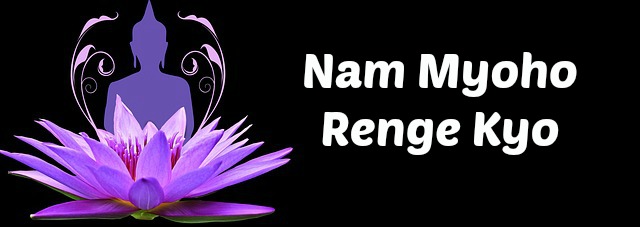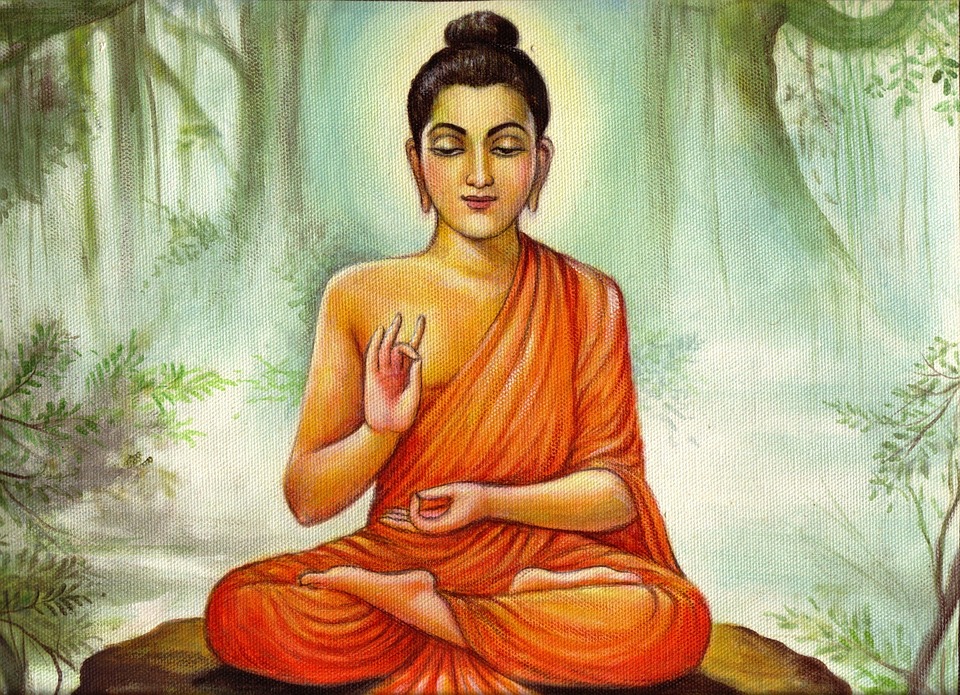Buddhism is based on the belief that each of us, at every moment, has the ability to overcome any difficulty or problem that occurs in life. All of us possess the capability to face and transform any adversity. The lives have this power as they are in unity with the primary law governing the working of everything in the universe.
The founder of Buddhism, Shakyamuni, awoke firstly to this fundamental law about 2500 years back. He discovered that the capacity to transform any suffering was inborn within himself and it is inborn within all living beings. After this, the 13th-century Buddhist monk Nichiren awoke to this principle or law and named it as ‘Nam-Myoho-Renge-Kyo’. He developed the practice through which everybody could find a way to activate this principle within their lives.
Nam Myoho Renge Kyo – The Buddhist Mantra

Nam Myoho Renge Kyo is a Buddhist mantra or vow chanting of which provides a way to awaken our Buddha nature, understanding the essence of our existence and the law that our lives and the universe are ultimately one. This mantra is a form of determination, a pledge one takes to oneself to never surrender to difficulties and overcome one’s sufferings. Moreover, it is a vow to help other people understand and experience this law in their lives and find happiness.
Nam Myoho Renge Kyo is the Japanese pronunciation of the name of Lotus Sutra in Chinese characters and the meaning of this mantra is ‘I devote myself to the law of Lotus Sutra’. This is not just a Buddhist mantra but a powerful manifestation tool capable of putting the practitioner on a fast track to enlightenment and self-empowerment. As explained below, each part of the phrase has deep meanings associated with it.
Nam
Derived from the Sanskrit term Namu which means ‘to devote oneself’, Nam stands for dedicating oneself. Nichiren established the method of chanting Nam-Myoho-Renge-Kyo as an effective way of enabling people to get their lives in perfect harmony with the Buddhist law. The Sanskrit phrase represents action or attitude and symbolizes the ideal action and attitude to attain Buddhism in his life.
Myoho
This word can be translated as wonderful or mystic law – the principle that governs the working of our lives and the universe at any moment. ‘Myo’ means the ‘mysterious’ or ‘invisible’ essence of life which is beyond understanding. ‘Myoho’ also means reviving, opening or being fully bestowed with the virtues needed for development in the lives.
Renge
The meaning of ‘Renge’ is the lotus flower. This flower is fragrant and pure though it grows in muddy water. This way, the dignity and beauty of humanity exist amidst the difficulties of daily lives.
Moreover, lotus blossoms and bears seeds simultaneously, representing the concept of cause and effect. Our karma determines the conditions and quality of our lives. This law ascertains that we are responsible for our destiny, not only our fate but what we create.
Kyo
The literal meaning of ‘Kyo’ is Sutra, the Buddhist teaching. Here, the phrase is used to convey broader sense suggesting that all things in the universe are governed by the fundamental mystic law.
Chanting The Mantra

Nichiren started the practice of chanting Nam Myoho Renge Kyo to help the living beings find true enlightenment. Through this practice, one holds himself responsible for his own fate, acquires the power to change one’s destiny and hence, unlocks his highest potential.
According to Nichiren, Nam-Myoho-Renge-Kyo can be recited for any type of benefit or prayer. He says that this mantra can get the practitioner unbelievable benefits, even if he chants it once a day, once a year or once in a lifetime. The mantra is available to everybody without any distinction and anyone practicing it with the right attitude should benefit from it.
People who want to start chanting the mantra should begin by repeating it for a few minutes in the morning and evening. It is a personal decision how long to chant the mantra. However, it is important to make this practice a regular part of one’s everyday routine. Being human, it is natural for all of us to get thoughts in minds while practicing mantras. One should, however, chant the mantra without any pretense, naturally. Upon regular practice for few weeks, one should develop faith and find it easy to focus the mind during chanting.
Mantra recitation can help us meditate and identify the contents of our minds. We then start focusing and being courageous to act as the gardener of our own growth. Then, we can identify what we actually wish to achieve. As we chant further, we focus on the object of the desire and eliminate distractions and negative thoughts. Once the mind is focused firmly on the objective, it is sure to be achieved.
Benefits and Miracles
The benefits of chanting Nam Myoho Renge Kyo are many. Upon reciting the Buddhist mantra for few weeks, the practitioner starts experiencing miraculous benefits and effects, both worldly and spiritually.
- Things get smoother. In the early stages of repeating the mantra, people start noticing that things turn better and nicer. They feel being protected, able to think clearly, getting answers to problems, feeling at peace, getting less angry and feeling hopeful, calmer, less anxious, more creative and less afraid.
- Experience Buddhahood. The practice of Nichiren’s Buddhism is no different from our lives. When involved in this practice, we benefit from it and enjoy the real condition of Buddhahood throughout the lives.
- Problems get solved. Over the time, during the regular practice of the mantra, practitioners start noticing bigger changes like health recovery or long-term monetary problems solving. They learn to love and respecting self, finding life’s purpose, making and strengthening relationships, loving others and showing compassion.
The benefits and miracles of Nam Myoho Renge Kyo can be experienced conspicuous as well as inconspicuous ways. Chanter can sometimes face difficulties in practice but the key is to keep reciting the mantra and not give up.
With persistent practice, not only the problem gets solved but the practitioner achieves great fortune with confidence in faith.
- The Namagiri Thayar Mantra – For Wisdom, Creativity & Prosperity - April 29, 2024
- Krishnashtakam – “Krishnam Vande Jagadgurum” – Lyrics & Meaning - April 4, 2024
- Karadarshanam – “Karagre Vasate Lakshmi” – Meaning & Benefits - March 26, 2024


0 Comments